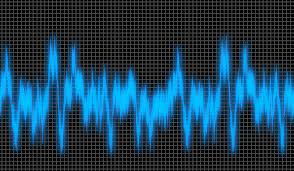Auditory Processing Disorder (APD) – When the Brain Doesn’t Hear Well!

Those with APD have communication issues. They mishear. They have trouble understanding speech-in-noise and following conversations. Words may be jumbled, missed or go unrecognized. Sound-alike words are easily confused. In children, APD leads to slow speech development and learning problems.
This may sound like typical hearing loss, but it is quite different. Auditory Processing Disorder is a frustrating condition that is still poorly understood and easily misdiagnosed or under-diagnosed. Although it often starts in childhood, adults – especially older adults – can also be affected. APD mimics the symptoms of hearing loss and of other conditions with which it can also coexist. So confusing!
The ears work but the brain struggles
Despite all sorts of communication challenges and hearing loss symptoms, patients’ peripheral hearing is fine. The ears work properly, and routine hearing tests are normal. The problem is in the central or hearing part of the brain. This is why APD is often referred to as Central Auditory Processing Disorder (CAPD). In APD/CAPD patients, the brain struggles to interpret, decode and process the information that it receives from the ears. Reactions to what was said are delayed and answers may be garbled. And so, at any age, APD is different from hearing loss, and it takes specialists to sort out the details.
Confusing, overlapping symptoms
APD is easily misdiagnosed or even totally ignored. In children, APD interferes with socializing and learning. The result is that kids may seem inattentive, slow to respond and show signs of frustration. Besides hearing loss, these symptoms are often misread as autism spectrum or ADD/ADHD. Parents are usually the first to detect that a child has slow speech development and mishears a lot. To further complicate things, APD can coexist with some of these other conditions. And so, getting a diagnosis and the necessary help before starting school could make a huge difference for the child’s future.
In older adults APD may be interpreted as aging “badly,” disinterest, depression, confusion and dementia. Symptoms are easily dismissed as hearing loss or worsening hearing loss related to age. Again, APD can coexist with other complicating conditions.
A laundry list of risk factors
There is no single, definite cause for APD. Instead, it is linked to a variety of risk factors. In children, the list includes premature or complicated birth, low birth weight, repeated ear infections, lead poisoning, meningitis, prenatal exposure to viruses and toxic chemicals, seizures/epilepsy and traumatic brain injuries. For adults one can add aging, multiple sclerosis, brain tumors, dementia and stroke complications.
Audiologists diagnose APD
So, with so much going on who can clear up at least some of the confusion? Audiologists diagnose APD and separate it out from hearing loss. Early diagnosis is especially important in children because of the compounded negative effects on communication and learning. However, once diagnosed by an audiologist, students qualify for reasonable accommodation at school as APD is recognized as a “specific learning disability” under IDEA (Individuals with Disabilities Education Act).
After a health history review, the audiologist performs a comprehensive evaluation that goes beyond standard hearing tests. Additional members of the intervention team can be speech-language specialists, psychologists and special educators for kids. Physicians can also get involved as it may be necessary to track physical issues that can disrupt or aggravate the brain’s auditory processing abilities.
Help but no cure
Although there is no cure for APD, a lot can be done to increase patients’ management and coping skills. Focused hearing and listening techniques, speech/language training, family and professional support, listening assistive devices, accommodation, such as background noise reduction and/or sitting close to the teacher or speaker help minimize APD’s impact on lives. Yet, as always, a timely diagnosis and intervention are important for patients of any age.